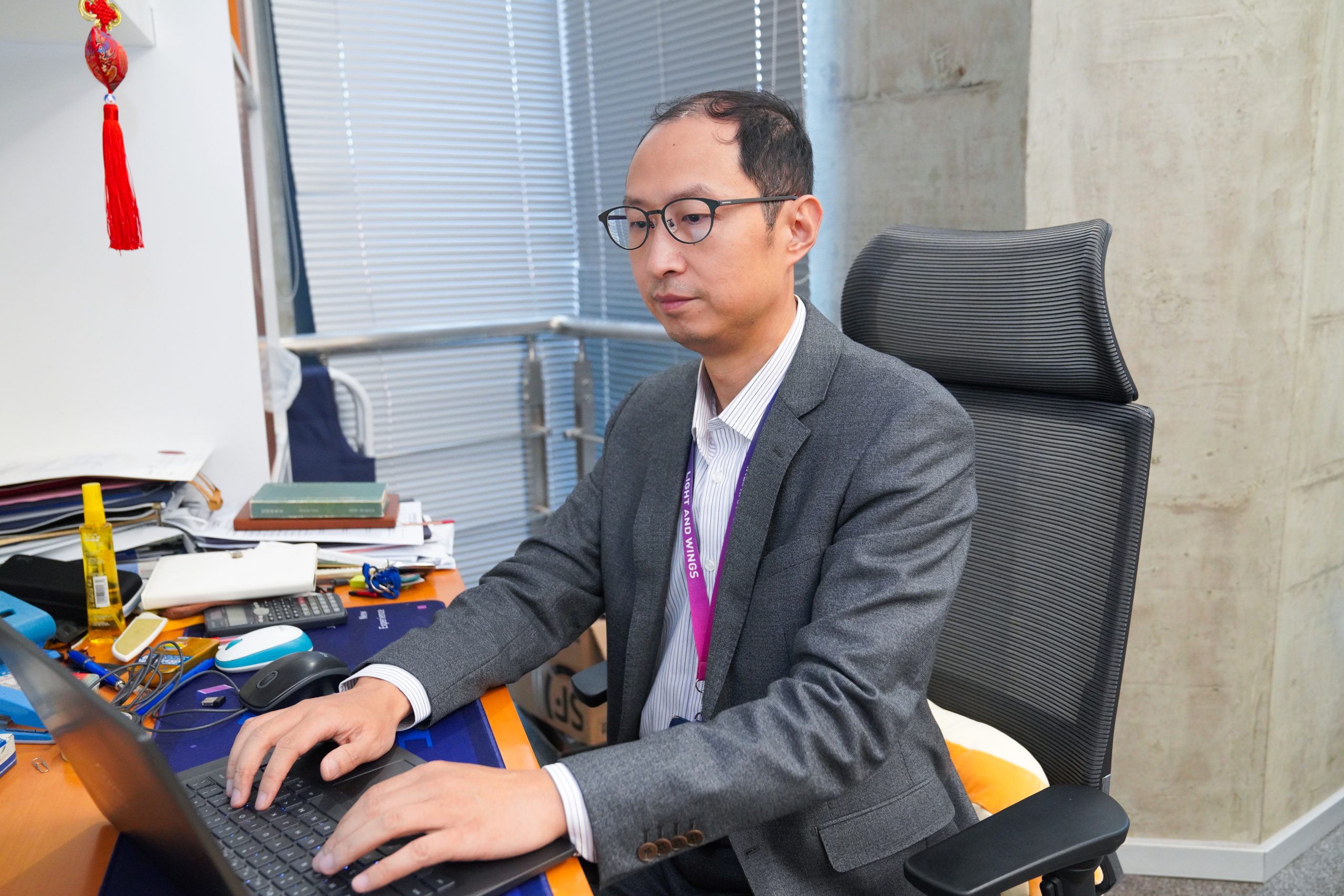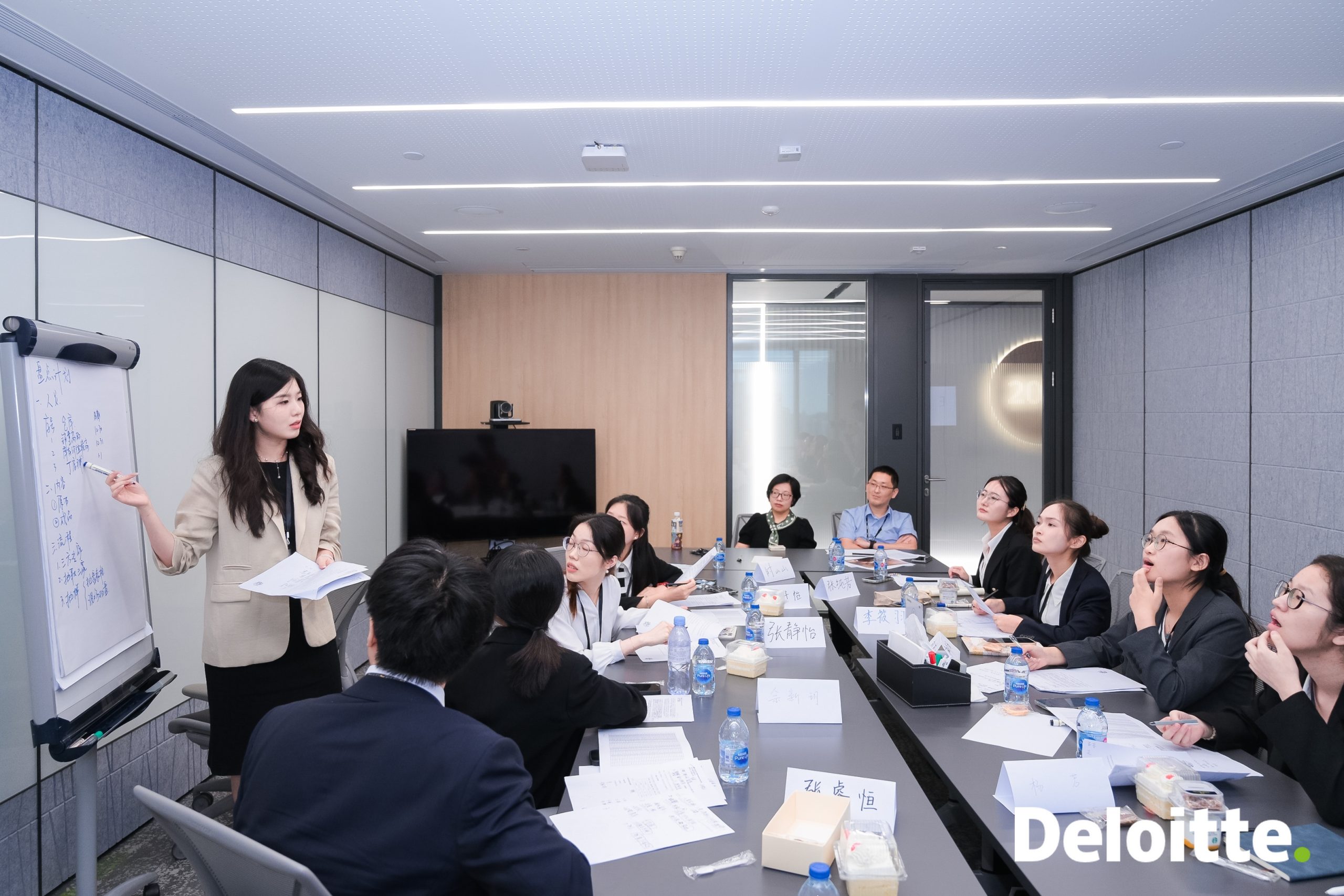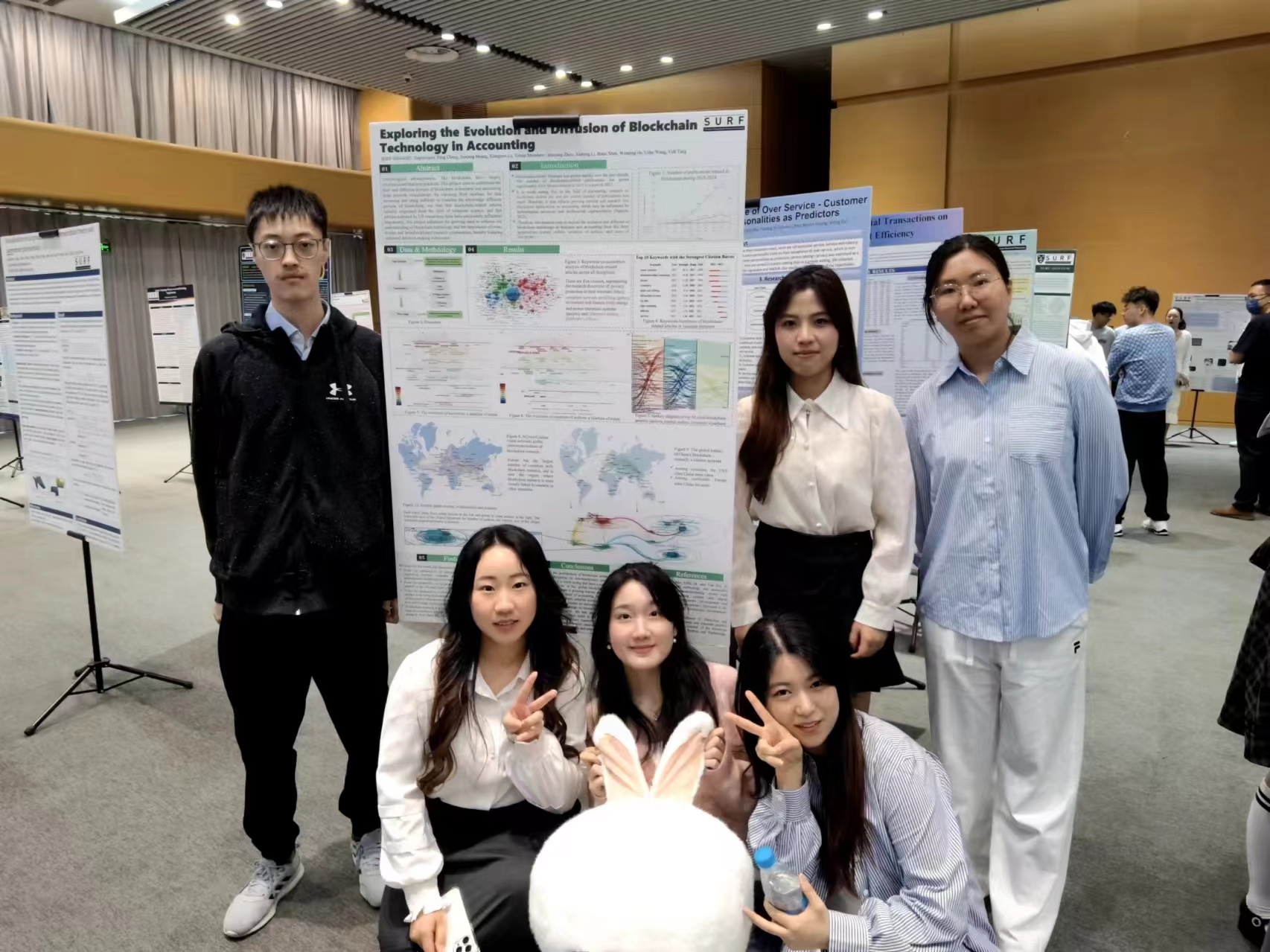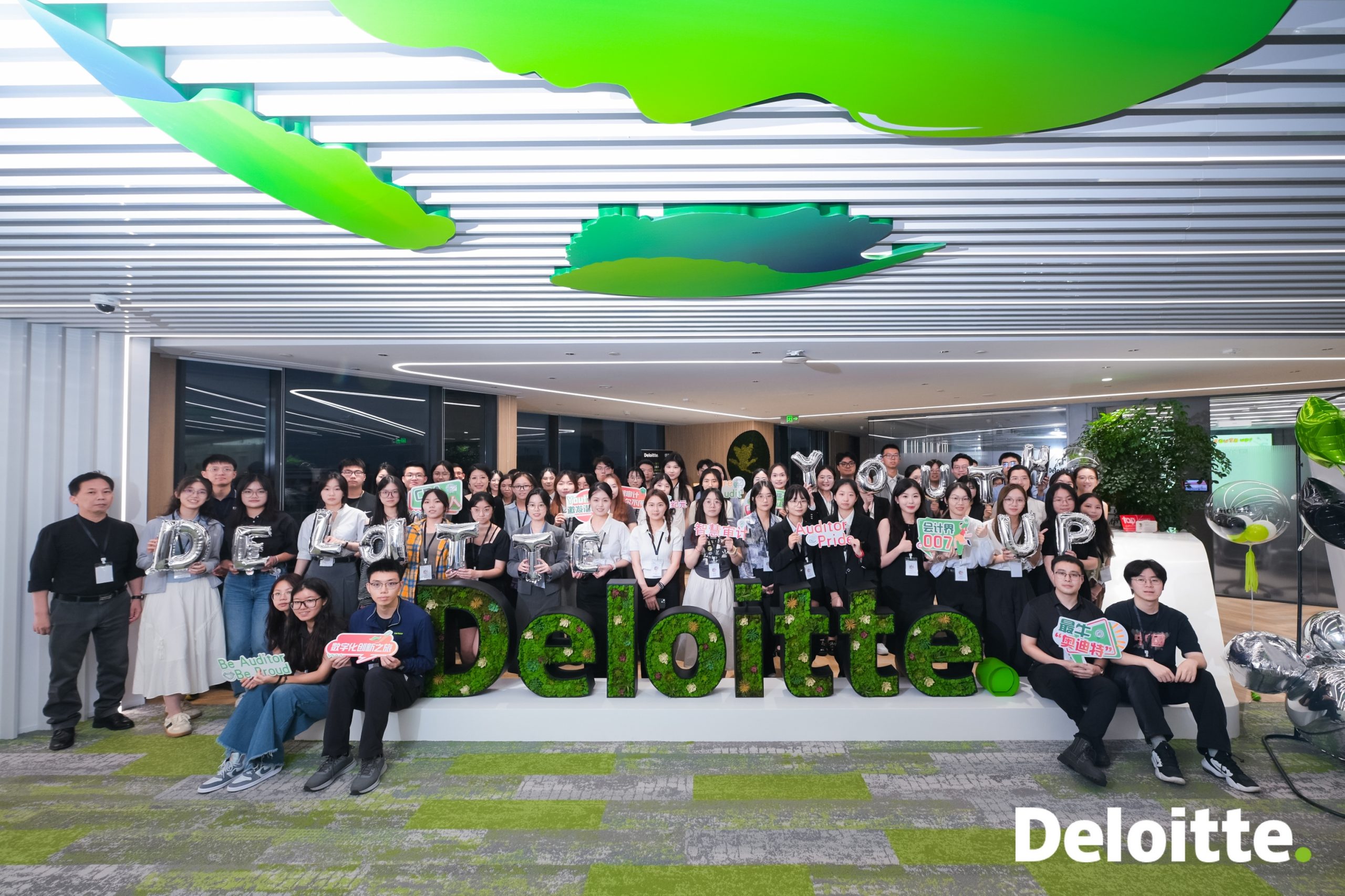Teaching accounting for tomorrow’s workplace
Adjustments in how accounting is taught at Xi’an Jiaotong-Liverpool University demonstrate how universities can prepare their students for a profession impacted by AI.
These changes are necessary: digital technologies, including AI, are rapidly being adopted in accounting firms. In a recent study of more than 900 accounting professionals across China, over 83% of respondents said their companies use digital technologies. The study, by the Accounting Department at XJTLU’s International Business School Suzhou (IBSS) and CPA Australia, found that AI played a significant role in auditing, a task core to the accounting field. Yet, the study found, skilled professionals remain in demand.

Dr Peng Cheng
In this Q&A, Dr Peng Cheng, Head of the Department of Accounting at IBSS and one of the authors of the research, explains how the department is preparing its students for the new workplace.
Q: The study you helped author shows that digital technology, especially AI, is widely used in the accounting industry in China. The report indicated digital technology has significantly improved audit efficiency and accuracy. It also noted the industry's emphasis on data analysis and data mining capabilities. In your opinion, what changes will these trends bring to the accounting industry?
A: Digital technologies, including artificial intelligence, bring both opportunities and challenges to the accounting industry’s development. A major opportunity is that it can automate simple and repetitive tasks, reshaping the role of accountants so they can focus on higher value-added work. A major challenge is that low value-added jobs will be impacted. The future development trend is either automation or outsourcing to places with lower labour costs.
Accounting is developing into a field with a more refined professional direction. With the widespread application of digital technology, accounting and financial personnel who understand IT technology and IT technicians who understand accounting and finance have greater market prospects.

XJTLU Accounting students participate in the Deloitte Audit and Assurance Experience Day
IT technicians who understand accounting and finance are usually professionals with a technical background, such as computer science. They also have accounting knowledge and can understand accounting business scenarios. They can promote the automation of simple and repetitive accounting jobs and greatly improve work efficiency.
Accounting and financial personnel who understand IT technology are proficient in using digital technology, including data analysis tools. They can provide high value-added consulting and planning services, process massive amounts of data, and use technology-enhanced data analysis to assist in decision-making.
Across the industry, there is a structural difference in the demand and supply of talents. There are many accounting practitioners, but fewer high-end talents with both accounting/financial and IT knowledge. Accounting education needs to adjust to prepare these high-end talents.
Q: The report mentioned that use of digital technology has significant advantages in data analysis, but that the role of professionals in auditing is irreplaceable, especially in the issuance of audit report opinions. Can you explain what exactly is irreplaceable by technology here?
A: Technical means are just a tool, and how people use these tools makes a difference. So far, the audit report opinions heavily rely on the professional knowledge and judgment of accountants to review the conclusions drawn from data analysis. These accountants must have strong accumulated industry knowledge and understanding of specific enterprises.
Q: In response to these changes and opportunities, what adjustments will be made to XJTLU’s accounting talent training?
A: The overall direction is to develop cross-disciplinary talents with solid professional capabilities. Undergraduates and postgraduates have different focuses. Our accounting undergraduate class enrols nearly 300 students each year who have different needs and interests. Therefore, we need to provide them diversified choices.

Accounting student team’s XJTLU Summer Undergraduate Research Fund poster presentation
Our establishment of close cooperative relations with accounting associations in many countries and regions is one aspect of offering diversified choices. These relationships are necessary because our graduates from BA Accounting typically apply for postgraduate study in the UK, Australia, Hong Kong, Singapore, and other regions of the world, which have their own accounting associations. Across the globe, the positioning of these associations is also different. For example, some focus on auditing, while others focus on internal management accounting.
Furthermore, these cooperations enable us to provide students with not only examination exemption opportunities but also the rich industry exchange opportunities associations provide. These include industry research projects, professional competitions, visits to member companies, internship opportunities, and more. These practical opportunities enable students to better understand different industries and companies and enhance their experience-based learning.
Another aspect of offering diversified choices is providing a variety of digital skills courses at the primary and intermediate levels.
For example, we provide data analytics, information systems and econometrics courses based on Python and R languages, and this year we plan to add new courses on advanced information systems and advanced data analytics. We focus on developing students’ accounting data literacy (digital quotient) and abilities to use data analytics tools to solve practical accounting problems and provide tailored recommendations for financial optimisation.
For postgraduate training, we focus on the intermediate and senior levels. Our master's students are taught in small classes and we train them to be specialised talents with cross-disciplinary competencies. Our close cooperation with the Institute of Chartered Accountants in England and Wales (ICAEW) has enabled us to provide training that combines data analysis and strategic planning. This has strengthened our training on formulating digital strategies. The intermediate and senior talents we train can skilfully use data analysis to assist in financial decision-making and provide accurate recommendations for financial optimisation. They possess keen business acumen and strategic planning abilities.

Accounting students at the Deloitte Audit and Assurance Experience Day
Q: This academic year, XJTLU is promoting the exploration of integrating education and AI. Could you please tell us how the Department of Accounting is doing this?
A: We are focusing on two aspects: using AI as a teaching tool to enhance students' learning experience and teaching students AI literacy as content. The latter includes, for example, teaching how to use AI and automation technology to efficiently process accounting data and to make visual presentations. We strongly encourage educators to participate in off-campus teaching competitions, share their best practices, and embrace the era of rapid technological change.
By Bo Kou
Edited by Tamara Kaup
Photos by Jingrui Duan and courtesy of Deloitte
Legal Disclaimer:
EIN Presswire provides this news content "as is" without warranty of any kind. We do not accept any responsibility or liability for the accuracy, content, images, videos, licenses, completeness, legality, or reliability of the information contained in this article. If you have any complaints or copyright issues related to this article, kindly contact the author above.
